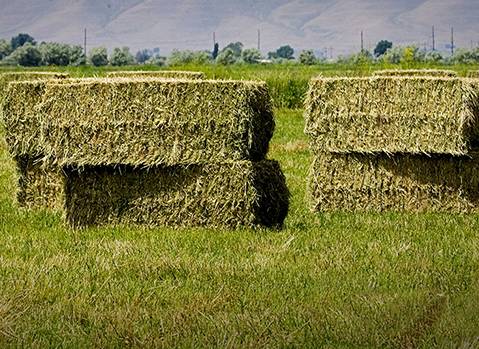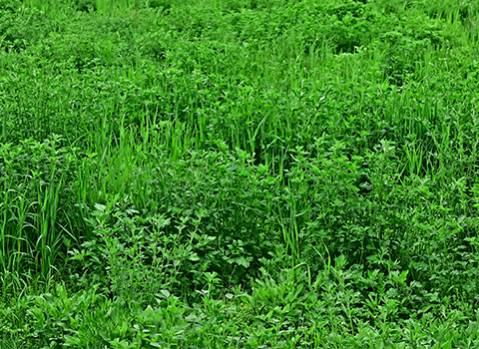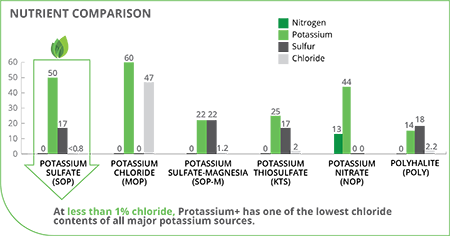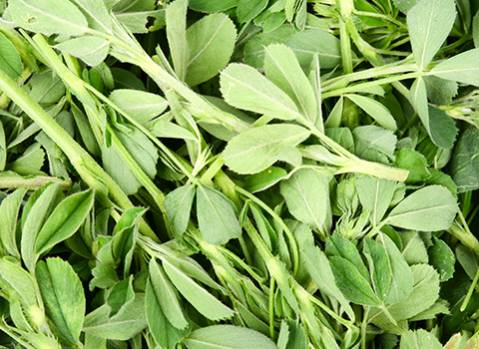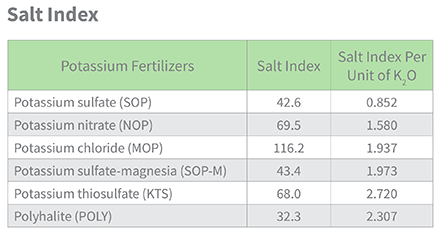Protassium+
The Right Source
When choosing the right potassium source for your alfalfa, it pays to take a closer look at what you’re actually getting for your money. Some of the factors you’ll want to consider include potassium content, value-added nutrients, salt content, risks in over-application, application costs, yield performance and forage quality.


